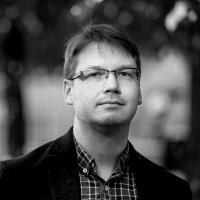
Matthew Light  @MattLightCrim
@MattLightCrim

Jan 18, 2024
18 tweets
A thread: The distressing Morozov case raises questions about Russian intelligence targeting of professional academics and related professionals in western countries. 1/

Mart Kuldkepp@KuldkeppMart
Jan 16 24
View on Twitter
Viacheslav Morozov, Professor in International Political Theory at University of Tartu, has been arrested by the Estonian Internal Security Service. He is suspected of espionage and aiding espionage against Estonia.
postimees.ee/7939316/kapo-k
I know Morozov only very minimally and by correspondence and will not comment on his possible guilt or innocence. He should have his day in court and will have it. Estonia is a rule-of-law state with credible courts and judges, and I trust that the case will be handled fairly. 2/
As context, Estonia is under extreme pressure from Russian intelligence. There have been spectacular cases of Russian infiltration of Estonian institutions. At the same time, Estonia has also scored notable successes in unmasking Russian spies, which it consistently publicizes.3/
I cannot prove this, but there is reason to think Estonia's police and counter-intelligence are more vigilant and effective than counterparts in many other western countries in this respect, or at least more concerned about Russian interest in their country's institutions. 4/
After Dr. Morozov's arrest, I reflected that despite being involved in post-Soviet research for some 20 years as a Western student and then professor, I have never received guidance about detecting or responding to possible Russian or other hostile intelligence interest in me. 5/
Over my career, I have had several disturbing experiences in the post-Soviet region when I had to reason to believe I was under intelligence surveillance. Many other researchers in/of the region can attest both to such experiences and to their lack of preparation for them. 6/
This points to two related western blind spots. First, while Russia does not have an attractive political system, social services, or living standards, it has highly effective intelligence services who take a broad view of what is useful information and who are useful sources. 7/
They are not only focused on stealing advanced technology or military secrets but also on burrowing into different professional milieus to form connections that may be useful in some less spectacular ways or perhaps pay off spectacularly in the long run, as with with Trump. 8/
Second, western academics are neither as politically irrelevant nor as safe as we might like to think. My dissertation reader, Ivan Szelenyi, convincingly argued that post-WW2 western university professors were uniquely insulated from politics. This is not how Russia operates.9/
During my doctoral field research in Russia, I was surprised when Russian interlocutors assumed I was tied into official structures in the United States. Their perception of me as politically exposed, if not employed, jarred with my belief that I was harmless and unofficial. 10/
In a sense, we both had a point. No, I wasn't working for the CIA, but it is true that western universities are connected to powerful national political institutions. And my Russian contacts' views of their own universities as overtly politically influence were correct. 11/
Western academics, particularly those who study sensitive world regions, mix with government officials in a variety of contexts, in which they perceive us as useful sources of information and even policy ideas, but also as politically innocuous, not to say irrelevant. 12/
Given academics' role as information brokers between the realms of unofficial civil society and government officials, it is not reasonable to expect Russia to leave us alone simply because we perceive ourselves as outside, if not above, the grubby world of politics. 13/
In fact, we sometimes learn official things in unofficial ways or bring our own knowledge to official attention. We sometimes can influence public and elite opinion. Those who study Russia are in contact with Russian emigre communities whom the Kremlin wishes to surveil. 14/
In short, as western academics, we need to acknowledge the interest we present to Russian and other hostile intelligence services. While less knowledgeable about other professional milieus, I believe the same point broadly applies to others, such as international journalism. 15/
Our independence from political leaders and freedom to speak and write openly help legitimate us as professional academics. We need to become harder targets against Russia and other hostile actors while not compromising these principles, but I don't know how we do that. 16/
McCarthyite witch hunts, intrusive surveillance, and university entanglement with police, defence, or counterintelligence bodies are clearly wrong answers. Information sharing within the profession, appropriate training, and developing best practices may be some right ones.17/17

Matthew Light  @MattLightCrim
@MattLightCrim

Jan 18 24
View on Twitter
I can add: I suspect most Western intelligence services are not very focused on academic (journalist, etc.) Russian spies, possibly because they see academics as not very important or dangerous. But I can't prove that.

Matthew Light 

@MattLightCrim
Associate professor of criminology and European studies, University of Toronto. Policing and public safety in Eurasia. @CrimSL_TO; @CERESMunk; @USITproject
Missing some tweets in this thread? Or failed to load images or videos? You can try to .
